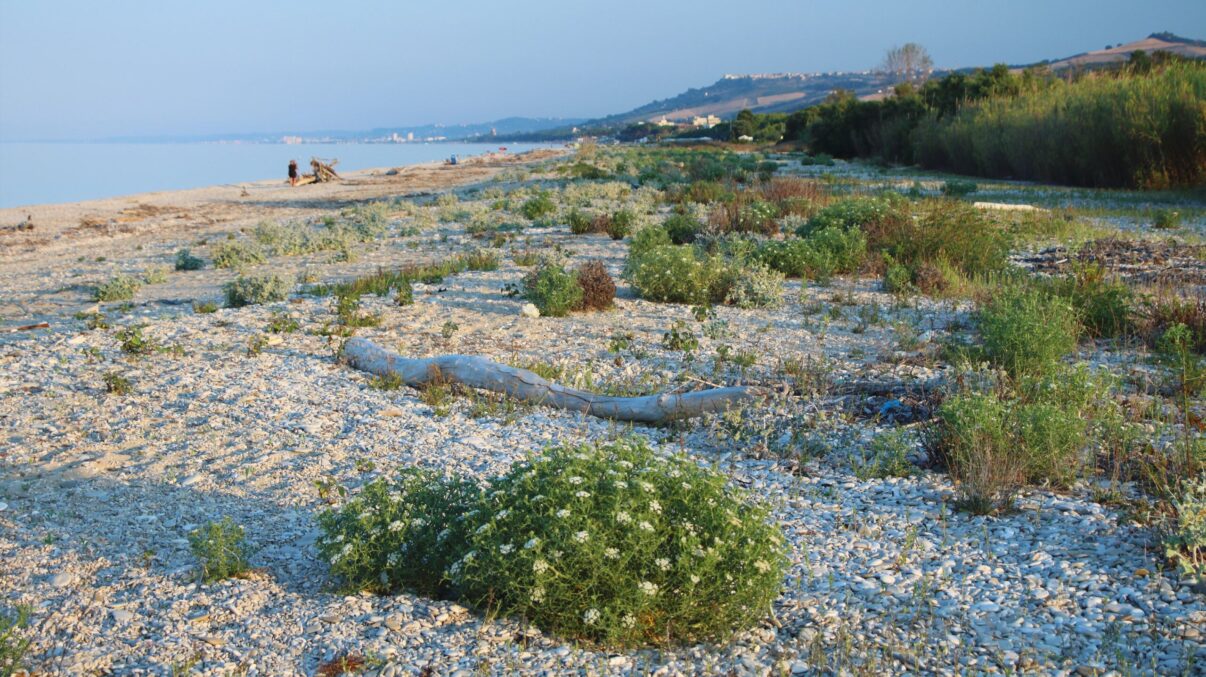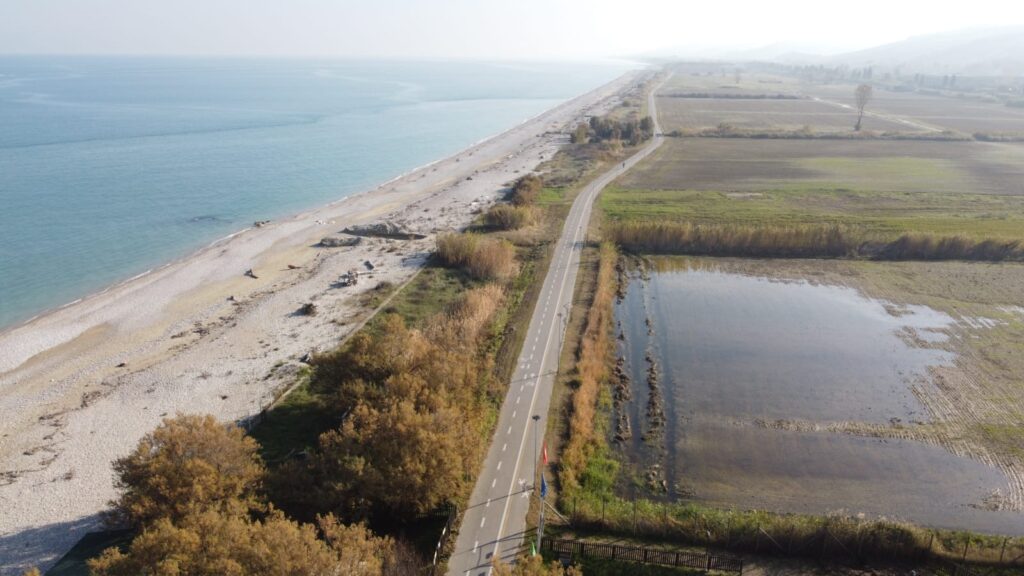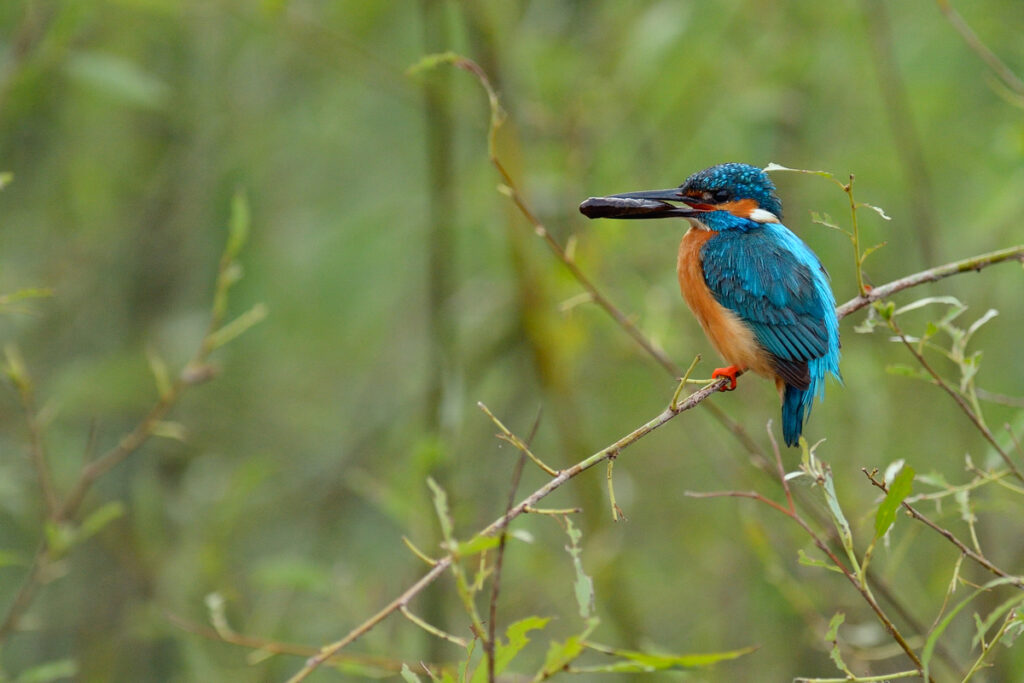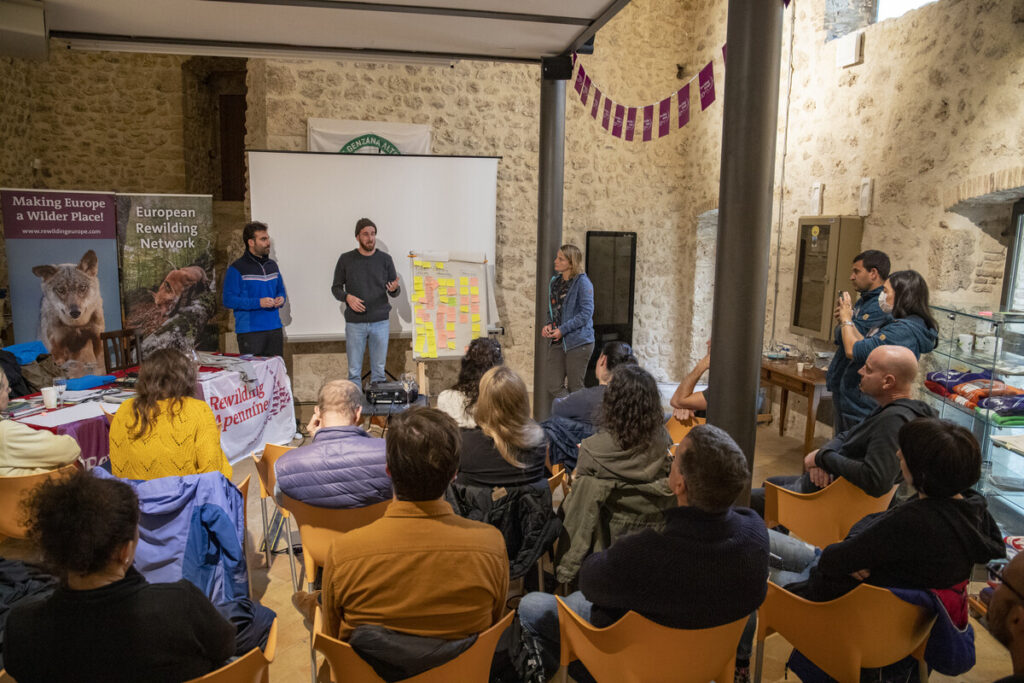The Italian association Paliurus aims to develop a sustainable nature-based tourism paradigm on the Adriatic coast, protecting and restoring a wilder river delta, supporting local jobs and enhancing the region’s natural diversity.

Responsible stewardship
With its programme ‘Wilder coast of Scerne’ the Paliurus Association has become the latest initiative to join the European Rewilding Network. Dedicated to enhancing the wildness and biodiversity found around Scerne on the Adriatic coast, Paliurius’ vision is to create a new tourism paradigm that can reduce and mitigate current threats to the natural environment caused by unsuitable development and mass tourism.
Instead, Paliurus is seeking to establish the wilder coast of Scerne as a more sustainable, nature-based tourism destination, which will ultimately serve to better protect local wildlife and natural areas, empowering local people to take pride in responsible stewardship of their rich natural and cultural heritage.
A sea of urbanisation
The area around the small Italian seaside town of Pineto – of which Scerne is a northern part – is a refuge to many species which have become rare elsewhere along this stretch of the Adriatic coast. However, regional wildlife is declining, driven by habitat fragmentation, widespread development and increased urbanisation. Continuing urban sprawl, dumping and illegal fishing are all ongoing threats.
Despite all these human pressures, the area possesses enormous potential for nature recovery and sustainable nature-based tourism. Where the nearby Vomano River enters the sea, a rich wetland complex is being restored by rewetting areas to support a mosaic of fresh, brackish and saltwater environments, restoring the natural connection between the coast and inland hills. The ultimate ambition is to connect with the adjacent marine protected area of Torre del Cerrano, protecting the entire estuarine system.

Rich in wildlife
Scerne’s natural richness in endemic Mediterranean species is already partially recognised with some local municipal protections. Hunting is forbidden around Pineto and the Vomano River mouth is designated as a no-take fishing zone, supporting the area’s potential for rewilding.
Beech marten, weasel, European polecat, red fox, roe deer, wild boar and even the Apennine wolf have all been seen in the area, while bottlenose and striped dolphins can be seen just offshore, but it is the rich birdlife that is most readily observed.
The coastal plain provides an important stopover and breeding site for many bird species, which nest in the reeds, in surviving riparian vegetation and along the pebbly shore. Kingfisher, little ringed plover, and northern lapwing all breed here, while the Kentish plover has become the flagship species for the area, symbolizing the environmental consequences of uncontrolled urbanisation and exploitation along the Adriatic coast.
The area also supports the presence of green toads in its network of small canals and ponds, and seahorses can be found in the coastal shallows. The area could be a suitable nesting site for loggerhead turtles, with a nest having been reported in neighbouring Roseto in 2013 and at the south beach of Pineto, in the marine protected area of Torre del Cerrano, in the summer of 2022.
By mediating with local stakeholders and raising environmental awareness Paliurus is striving to build a long-term conservation strategy for this section of the Adriatic coast. They aim to reach agreements with local authorities to restrict fishing activity within this buffer zone to catch-and-release, or even establish the gazetting of some inshore no-take zones.

Raising awareness
To showcase the value of the natural environment along the Adriatic coast and raise environmental awareness among both the younger generation and adults, Paliurus has made four documentary films which have been screened in public events.
Its ‘Wilder coast of Scerne’ initiative is supported by volunteers who are all highly motivated to reduce the threats to the area and boost local wildlife, with various plans in development. The volunteers are also setting up a photographic exhibition to nurture greater interest in the area’s natural and historical heritage.
Paliurus continue to produce and distribute educational materials promoting the protection of nature from urban sprawl, human disturbance, and habitat fragmentation, while lobbying relevant organisations and institutions to both improve and enforce current legislation related to the conservation of local coastal ecosystems and endangered species.
Increase support
The Chairman of Paliurus, Francesco Verrocchio, hopes joining the European Rewilding Network will help his organisation continue to grow, refining its communication skills, and helping them to further increase community engagement.
“Paliurus is very proud to have become part of the European Rewilding Network, where people who share our concern about the depletion of nature in Europe have teamed up to rewild Europe’s degraded landscapes and ourselves. We hope being part of this network will give us an opportunity to amplify our message and increase support for our important work.”

A platform for exchange
Today rewilding is gaining momentum as a progressive and effective approach to conservation in Europe. Underpinning this trend, the burgeoning European Rewilding Network continues to foster collaboration and amplify results.
Founded by Rewilding Europe in 2013, the aim of the European Rewilding Network is to enhance the efforts of each member by facilitating the exchange of skills, insight and experience.
Members meet regularly, usually via webinar, while nature-based businesses can also apply to Rewilding Europe Capital, Rewilding Europe’s enterprise loan facility. Members can also apply for the European Wildlife Comeback Fund.
Rewilding Europe extends a warm welcome to all European rewilding initiatives that focus on practical, result-oriented rewilding and encourages them to apply for ERN membership.
